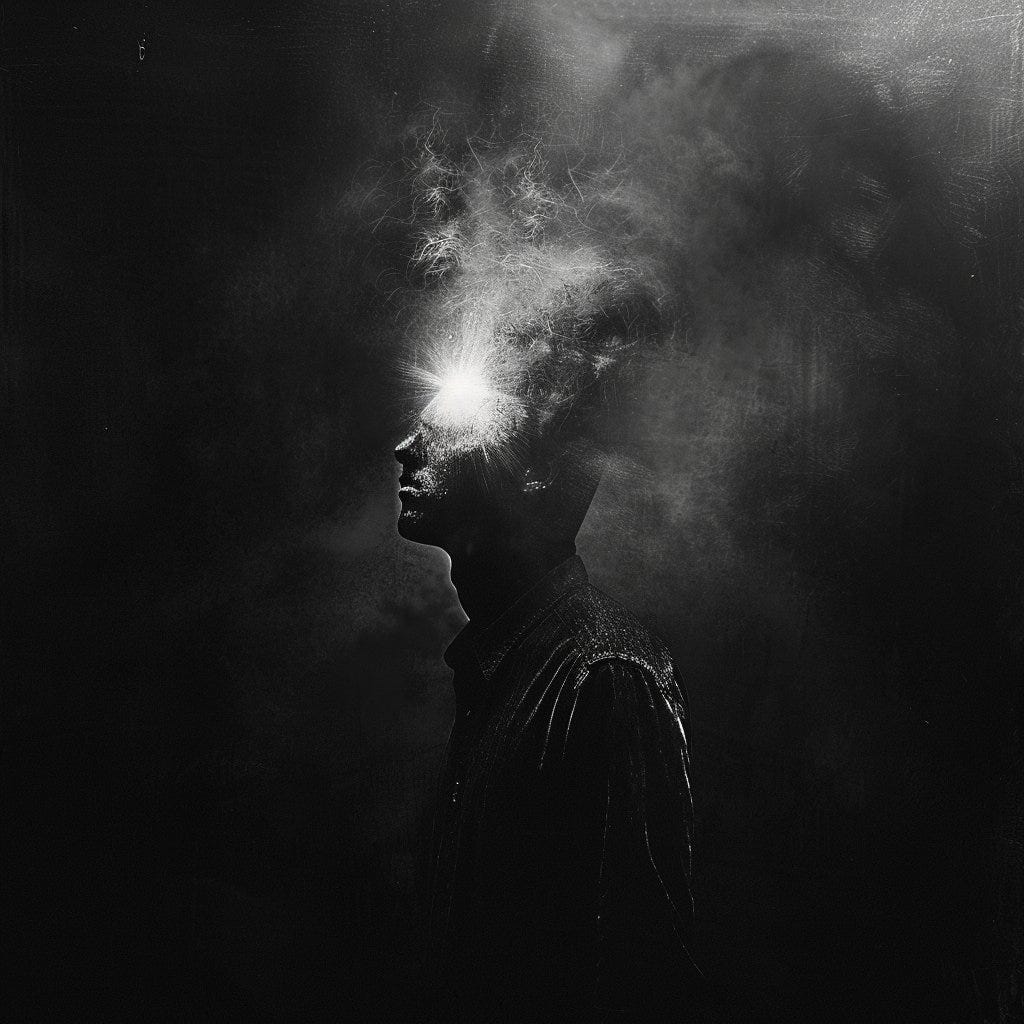"Sin Darkens the Intellect"
Just because we like to say it doesn't make it true.
One of the most baseless things I ever allowed myself to believe as a religious person is the adage: "sin darkens the intellect."
Friends and I would use this liberally to try to make some sense out of inexplicable behavior on the part of this or that heretic, which to us seemed stupid.
But this is simply nonsense.
If a man becomes a slave to his passions, he will certainly act foolishly, rationalizing and justifying them however he can, refusing to look at the logical consequences of his actions.
But if a man becomes deeply religious, he does the same thing in reverse. He is given over to confirmation bias, he dismisses evidence that doesn't fit his salvation narrative a priori, he effortlessly falls into superstitious beliefs if they seem devout and virtuous and in service of his faith, he becomes suspicious of science and reason and the epistemological capacities of the human mind, etc.
You could as easily, and frankly with even more evidence, say that "religion darkens the intellect."
All you're really saying is that when a man subordinates his reason to some addiction or vice or belief system or the preconceived ideas of his tribe, he is rejecting the use of his reason as his primary tool for ascertaining truth in favor of whatever it is he desires, whether that's reprobation or religion.
For a related read, please check out this post from the archives:
Note: I often write up mini-reflections like these and post them on social media. I tend to think of Substack as more of a long-form platform. But it occurs to me from time to time that perhaps I should post more of these here, because they’re topically appropriate, so today I decided to give it a go. If you like the occasional quick read/discussion starter like this, please let me know in the comments and I’m happy to include these more often.




Someone asked me after reading this, "Not quibbling, but isn’t there still a relationship between the two? What if I juxtapose sin and intellect? Might that not provide a more accurate understanding of how dark or minor a sin might actually be? And why we are instructed not to judge?"
My reply:
I don't think that there is. It was easy to believe it while spending my life rushing from my sins to the confessional every couple of weeks, trying to stay in a state of grace.
But I'm an apostate now. A heretic. I don't go to church. I don't follow the disciplinary laws. I'm a great heaping pile now of arbitrarily-defined mortal sins.
And yet, I believe I'm thinking more clearly than I ever did, because I'm actually thinking, not just parroting beliefs and acting out of fear. I'm considering issues more broadly, weighing what feels true or false about them, trying to come to a conclusion that makes sense instead of one that is pre-ordained.
And I know what my intellect "feels" like. I know how it changes when I'm tired or grumpy or stressed or hungry or under the influence of some intoxicating substance or other. I know how it feels for my intellect to be noticeably diminished; for my brain to simply not have all the horsepower it did before for whatever reason.
None of that is remotely perceptible.
So to my mind, just like "If God is not, everything is permissible," this is more of a thought-terminating cliché than a truism. I also thought that if I stopped believing in God I'd suddenly become wicked. I acted the part a little bit early on, until I realized I was just rebelling against a lifetime bound up by rules, and that I didn't need to be dumb about it. That morality and ethics still mattered. That they mattered because they are the only way you can live in a society with others, whether the macro society around us or the even more important micro societies in our homes. That I care about my conscience being clear enough that I can sleep at night without being overburdened with regrets.
I didn't stop believing because my sins were making me stupid, and I didn't stop believing because I ardently wanted even more sin. These are just things we tell ourselves as a means of psyching ourselves up to stay inside the lines.
I wonder if some of this is tied up in personality. We are told to have a defense of our faith, but I think Catholicism, in particular, makes it easy to slack off on that one; the culture is one that doesn't emphasize personal studying the way some Protestant denominations do, and it is easy enough to point at the Magisterium for answers. Similarly, outside of religion, there is the little 't' "tradition" that has often guided society, for both better and worse, and I imagine people grew up with the life trajectory they did because that's just how things are done. It probably both kept people away from vice without too much thought, but might have also stunted people.
Regarding this format, I'm of two minds. I don't use Twitter, but before X locked it down more, I would periodically jump over to see what you would post if you hadn't posted here in a while, and the content was interesting, so I would be glad to not miss out on it here on Subtack. On the other hand, I try not to live my life reading other people's takes on life, so I would probably get a bit overwhelmed by more posts. But I'm also not afraid to just delete based on title alone.